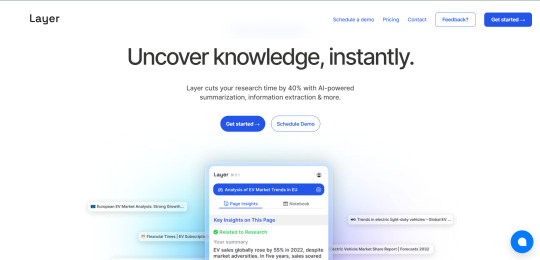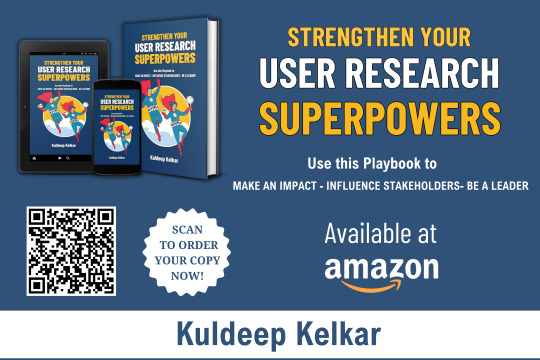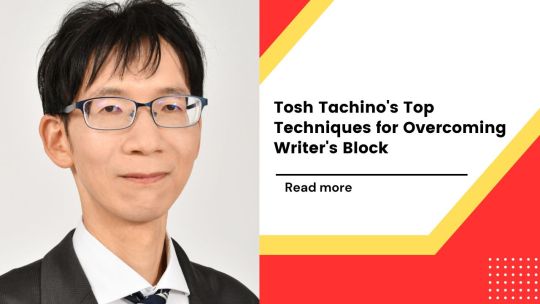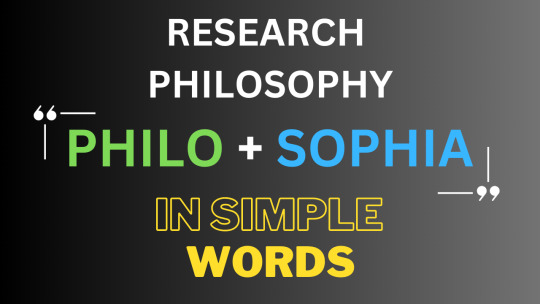#researchtips
Explore tagged Tumblr posts
Text

Cell lines can change over time due to genetic changes. These changes can include mutations or chromosomal abnormalities that affect the way cells respond to stimuli. Have you ever encountered unexpected results in your research that may have been due to genetic changes in your cells?
Share your experiences in the comments below!
3 notes
·
View notes
Text
Fix Common Issues with Research Guidance Feature of Legacy
Having trouble with Research Guidance in Legacy Family Tree? It’s been relocated—access it via Tools > Other Tools, the Family View symbol, or right-clicking the Husband/Wife box. Facing script errors? Click “No” repeatedly, update Internet Explorer, reset settings, and enable script debugging. Need help? Contact Legacy Family Tree Support.
#LegacyFamilyTree#GenealogyTech#FamilyTreeHelp#ResearchGuidance#ScriptErrorFix#GenealogySupport#TechTips#FamilyHistory#GenealogyTools#LegacySupport#ResearchTips#FamilyTreeSoftware
0 notes
Text
A strong thesis starts with a solid foundation. Master the art of topic selection, literature review, and research planning for Ph.D. success.
#phdthesis#researchtips#phdlife#academicsuccess#thesiswriting#phdresearch#literaturereview#phdjourney
0 notes
Text
Building Your Genealogy Research Notes: A Beginner's Guide
Genealogy is all about finding and organizing information about your family’s history. Research notes are a simple way to keep track of what you find and make sure your family tree is accurate. Here’s how to get started.
Why Research Notes Are Important
Research notes help you:
Keep track of what you find and where you found it.
Spot gaps in your research.
Stay organized so you can easily review your work later.
Steps to Create Good Research Notes
Start with a Question: Focus on one thing at a time, like “When and where was John Smith born?”
Write Down Source Details: Always note where the information came from, like a birth certificate or census record.
Record What the Source Says: Keep it simple and factual. For example: “The birth certificate says John Smith was born on January 1, 1875, in Boston.”
Classify the Evidence:
Direct Evidence: Answers your question directly, like a birth date on a birth certificate.
Indirect Evidence: Needs more clues to answer the question, like a census record showing someone’s age.
Analyze and Compare: Look at all the evidence together to find patterns or resolve conflicts.
Stay Organized: Use headings, bullet points, or tables to make your notes easy to read.
Example of a Research Note
Question: When and where was John Smith born?
Source: Birth Certificate, Massachusetts Vital Records, 1875.
What It Says: John Smith was born on January 1, 1875, in Boston, Massachusetts.
Evidence Type: Direct Evidence.
Analysis: This clearly answers the question. Other records, like a census, can back it up.
Quick Tips
Use the same format for all your notes.
Focus on one question at a time.
Update your notes when you find new information.
Good research notes make your genealogy work easier and more reliable. They’ll help you build a strong family tree and share your discoveries with confidence.
#Genealogy#FamilyHistory#ResearchTips#GenealogyResearch#FamilyTree#Ancestry#ResearchNotes#BeginnerGenealogy
1 note
·
View note
Text

out these 3 essential tips to make your writing clearer, more concise, and impactful: 1️⃣ Keep it clear and simple 2️⃣ Cut the fluff — be concise 3️⃣ Organize your thoughts for a stronger flow 🧠 🔖 Don’t forget to save this for when you need a quick writing refresher! Need more tips to level up your writing? Hit Follow for weekly academic writing hacks and study strategies! 📘🚀
#AcademicWriting#WritingTips#EssayWriting#StudySmart#WritingCommunity#StudentWriting#WritingSkills#StudentLife#EssayHelp#AcademicSuccess#StudyHacks#PrashasWriting#ResearchTips#WritingCoach#CollegeLife#WriteBetter#ScholarTips#StudyMotivation
0 notes
Text

How Long Should an Introduction Be in a Research Paper?
The length of an introduction in a research paper plays a crucial role in setting the tone and context for the study. It also outlines the research objectives, hypotheses, or questions, offering readers a clear understanding of what to expect. This section should be concise yet comprehensive, providing an overview of the research topic, its significance, and the problem being addressed.
#WritingTree#Researchpaperwriting#researchpaperwritingservice#ResearchJourney#PostgraduateLife#WritingCommunity#AcademicWriting#ResearchTips#ResearchGoals#AcademicLife#phdguidance
0 notes
Text
Maximize Your Research Productivity with Layer App: Tips and Tricks

Unlock the full potential of Layer App with these strategies to enhance your research workflow:
Tip 1: Utilize AI-Powered Insight Extraction
Explanation: Leverage Layer App's AI capabilities to identify and highlight critical information within documents, reducing manual effort.
Tip 2: Transform Notes into Structured Reports
Explanation: Use the note transformation feature to convert your annotations into well-organized reports, streamlining the documentation process.
Tip 3: Ensure Precise Sourcing
Explanation: Maintain credibility by utilizing Layer App's precise sourcing to accurately reference extracted insights.
Tip 4: Customize the User Interface
Explanation: Adjust the interface settings to suit your workflow preferences, enhancing usability and efficiency.
Tip 5: Integrate with Existing Tools
Explanation: Incorporate Layer App into your current research tools and platforms to create a cohesive and efficient workflow.
Implement these strategies to optimize your research process with Layer App. Visit aiwikiweb.com/product/layer
0 notes
Text
Unlock Your User Research Superpowers!

A must-read for every User Researcher, Designer, UX Leader aiming to make an impact.
Packed with 52 actionable tips to lead, influence, and elevate your impact.
Convert challenges into opportunities with proven insights from industry expert.
A must-read for every user researcher aiming to drive real results!
#UserResearchSuperpowers#userresearch#uxsuperpowers#leadershipskills#designthinking#productinnovation#uxstrategy#researchtips#userexperience#stakeholderengagement
0 notes
Text
Essential Tips for Academic Writing Success

Master academic writing and boost your publication chances with these tips:
Organize Effectively: Structure your paper clearly.
Strong Thesis: Make your thesis concise and arguable.
Thorough Research: Use up-to-date sources.
Revise Carefully: Seek feedback and refine drafts.
Proper Citations: Follow the required style accurately.
Choose the Right Journal: Select a suitable journal and adhere to guidelines.
Seek Expert Help: AAwriting offers guidance on refining and submitting your paper.
#AcademicWriting#ResearchTips#Publishing#Thesis#CitationStyles#JournalSubmission#AcademicSuccess#ResearchGuidance#WritingTips#PublicationProcess#HigherEducation#AcademicCommunity
0 notes
Text
Tosh Tachino's Top Techniques for Overcoming Writer's Block

By Tosh Tachino, Ph.D.
Academic writing can often feel like a daunting endeavor, especially for those transitioning from school writing to scholarly writing. Unlike school essays, academic publications demand a different approach, one that is reader-centered and contributes meaningfully to the field. Here are some practical tips for aspiring scholarly writers.
Understand Your Audience
In school writing, your audience is typically your instructor, who is obligated to read your work to assess your knowledge and knows your topic more than you do. In contrast, the audience of scholarly writing is other scholars who are not obligated to read your work. Their motive is to obtain relevant information they don’t know for their purposes. So your writing must contain useful information for them and serve their purposes.The point of scholarly writing is not to impress your reader with your knowledge (to get an “A”) but to provide useful information that advances the field.
Shift Your Focus
Moving from school writing to scholarly writing involves several key shifts:
From Writer-Centered to Reader-Centered: It is no longer about your learning. Focus on how to be useful to your readers.
From Synthesizing to Creating Knowledge: You are no longer just reading other people’s research and summarizing for an academic exercise. You are now producing your own new knowledge that relates to other people’s research.
From an Observer to a Participant: The work cited is no longer a list of random names. They are now people you actually speak with, and they will talk back to you.
Emphasize the news value of your research. What is new and non-trivial about your findings? How does your work advance scholarly conversations?
Become Familiar with Your Field
To make a significant contribution, you need to:
Know the Current Conversation: Stay updated with the latest research and discussions in your field.
Identify Knowledge Gaps: Know what people in the field want to know but don’t yet know.
Make Timely Contributions: Certain topics have been discussed to death already. Make sure your research addresses these gaps and contributes to the present scholarly debates.
Regularly read key journals and attend conferences to stay informed about current trends and gaps in your field.
Use Textual Features Meaningfully
Student papers and scholarly papers share many textual features. But the meaning of these textual features are different in scholarly writing.
Organization & Formatting: They are no longer about arbitrary requirements. The expected organization and formatting in the field help readers find information easily without reading the entire article.
Jargon: They allow you to be precise and concise.
Boosters & Hedges: They are not about your personal confidence, but they allow you to manage nuanced knowledge claims.
Citations: Who you cite and how you cite tell a lot about who you are as a scholar, including your theoretical allegiance, your relationship with other scholars, and your position within the field.
Reflect on these familiar features and know why you are using these textual features the way you are using.
Final Remarks
Transitioning to scholarly writing requires a shift in mindset and approach. By focusing on your readers, engaging with current scholarly conversations, and using the textual features reflexively, you can write an academic article that makes a meaningful contribution to your field.
Best of luck with your academic writing endeavors!
About the Author:
Tosh Tachino is a university lecturer and a language and communication consultant. He has taught and tutored many students and clients of all levels to achieve their goals in academic English. His previous work appeared in Journal of Applied Linguistics and Professional Practice, Text & Talk, Written Communication, Inkshed, Winnipeg Free Press, among others.
#AcademicWriting#ScholarlyWriting#WritingTips#ResearchTips#AcademicSuccess#WriterAdvice#ScholarlyArticles#ResearchSkills#AcademicLife#UniversityTips#HigherEd#WritingCommunity#Education#KnowledgeCreation#AcademicResearch#WritingAdvice#LanguageConsultant#ToshTachino#AcademicExcellence#ScholarlyWork
1 note
·
View note
Text
Unlock the secrets of research paper hunting with these 3 simple steps! 📚💡 For expert assistance, visit www.indiaassignmenthelp.com
1 note
·
View note
Text
A strong thesis starts with a solid foundation. Master the art of topic selection, literature review, and research planning for Ph.D. success.
#phdthesis#researchtips#phdlife#academicsuccess#thesiswriting#phdresearch#literaturereview#phdjourney
0 notes
Text
What is Research Philosophy, in simple words?
Philosophia is a Greek word formed with two names, PHIL and SOPHIA. 'Phil' means 'knowledge', and Sophia means 'Love', so the meaning of philosophy here is the (Knowledge + Love) love of knowledge.
Understanding research philosophy for Masters and PhD students. Have you ever wondered about the meaning of Ontology? This philosophical concept has been a topic of discussion among scholars and intellectuals for a long time. The debate between Objectivism and Subjectivism is at the core of Ontology. Objectivism asserts the existence of objective reality and believes that knowledge and truth can…

View On WordPress
#ontology#Philosophy#Research methodology#Research Writing#researchanddevelopment#researchmethods#researchtips
0 notes
Text

📚✨ Master Your Academic Writing! ✨✍️
Struggling with academic writing? It doesn’t need to be hard! Check out these 3 essential tips to make your writing clearer, more concise, and impactful: 1️⃣ Keep it clear and simple 2️⃣ Cut the fluff — be concise 3️⃣ Organize your thoughts for a stronger flow 🧠
🔖 Don’t forget to save this for when you need a quick writing refresher!
Need more tips to level up your writing? Hit Follow for weekly academic writing hacks and study strategies! 📘🚀
#WritingTips#AcademicWriting#StudentHacks#StudySmarter#AcademicSuccess#EssayHelp#WritingCommunity#StudentMotivation#PrashasWriting#StudyTips#EssayWriting#StudySmart#StudentWriting#WritingSkills#StudentLife#StudyHacks#ResearchTips#WritingCoach#CollegeLife#WriteBetter#ScholarTips#StudyMotivation
0 notes
Text

GET PROFESSIONAL PhD THESIS and RESEARCH PAPER WRITING SERVICES for
- Operations Management
www.writingtree.in wa.me/+916264689448 [email protected] Contact Now!
Our services can help you at various stages of your thesis writing process, from topic selection and proposal development to the final thesis submission.
#WritingTree#thesiswritingservices#phdthesiswritingservicesinindia#synopsiswriting#phdsynopsiswriting#phdsynopsiswritingservices#phdthesis#PhDhelp#dissertationwriting#operationsmanagement#OperationsManagement#InventoryManagement#ResearchTips#PhD#phdstudents#assignmenthelp#phdjourney#PhDServices#bestthesiswritingservice#PhDGuidance
0 notes
Text
Start Your Learning Journey!
Are you starting a research project? Don't rely solely on AI. Instead adopt our updated Practical Research Course on Udemy. Once you ‘learn’ how to do something, that knowledge can never be taken from you! This course offers hands-on guidance to help you craft a solid outline that you can hang your research proposal, paper, or project upon. You will develop critical thinking skills and gain confidence in your research abilities on your learning journey. So say goodbye to generic AI tools and hello to practical research skills, and I’ll see you at the finish line! #ResearchTips #LearningJourney

0 notes